The cost-effective way for creating an online marketplace
Narek Bayadyan • Updated on Nov 22, 2021 • 7 min read
You probably think of a web product as something that should be expensive and time-consuming to build, and that prejudice might hold you back from creating an online marketplace for your business.
If that's the case for you, this article is going to surprise you positively.
Below, you will have popular marketplace examples for inspiration and a necessary toolbox for creating a perfect online marketplace without coding knowledge, the help of developers, or high costs.
But before that, let's dive deeper into what an online marketplace is and which main types it has.
What is a marketplace?
eBay, Uber, Airbnb, Etsy, Amazon… you got the idea.
The online marketplace is a platform that connects supply and demand and allows users to buy and sell products.
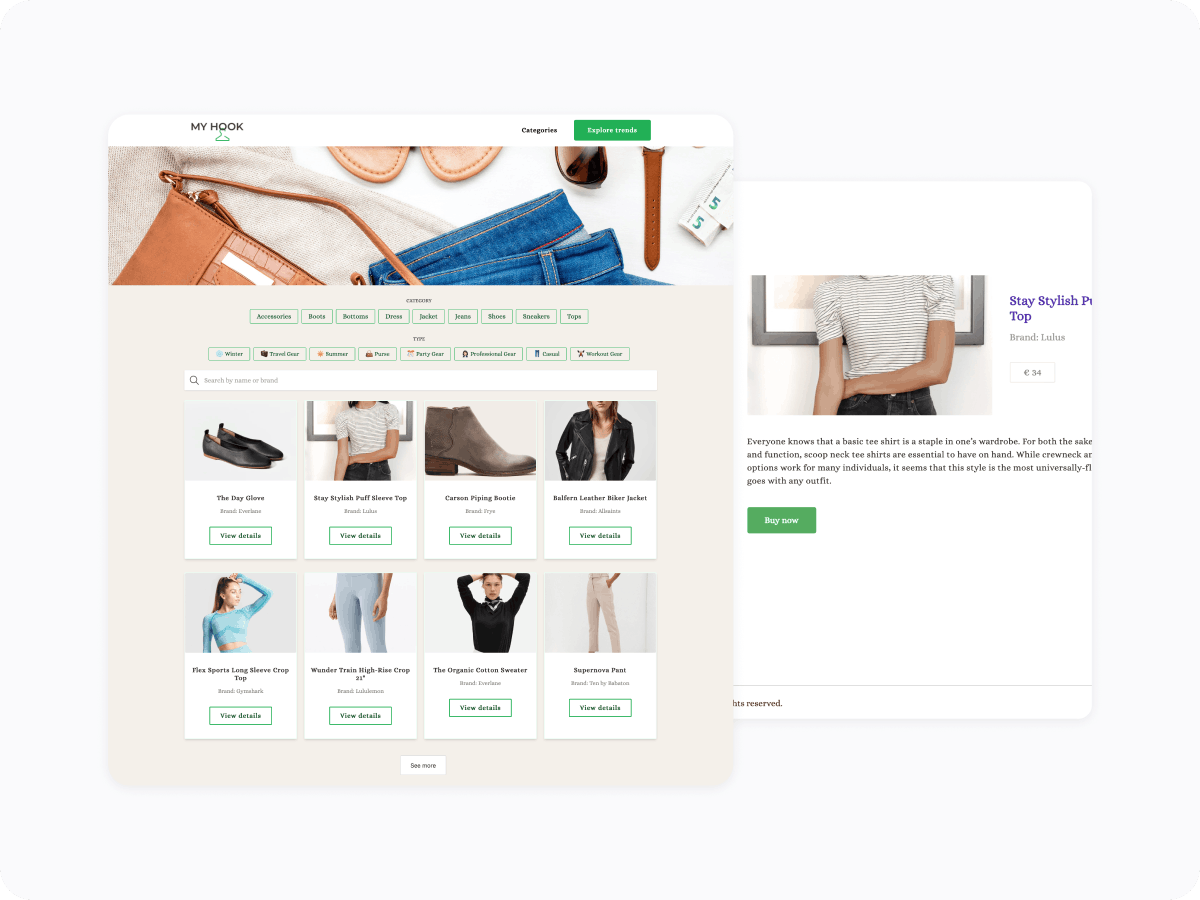
You probably have the idea of how those platforms generate revenues, right? They provide the space for sellers and buyers to connect and make transactions and earn some percentage of the transactions or fixed marketplace fee in exchange.
Therefore, you can earn money from your developed online marketplace without the necessity to sell any product or service yourself. Your topmost task is to tie up a good functional and convenient UX in your marketplace website and attract users.
The benefits of online marketplaces
Marketplaces are far more convenient than online stores of a single brand. There are benefits both for buyers and sellers.
It's a fact that users visit marketplaces with multiple brands more often than online stores of a particular company. Firstly, they have a significantly wider variety of choices in multi-brand e-stores compared to single-brand stores. Besides, there is rough competition between the brands offering the same niche products in online marketplaces, resulting in sellers trying to provide better pricing for the buyers.
Online marketplaces are also beneficial for buyers, as there is already a well-established base of customers, and marketplaces handle all the marketing and promotion activities. It's easier and more cost-savvy for a company to present its products on platforms like eBay rather than creating a personal e-store from scratch and spending resources on promoting it.
Main types of online marketplaces: Marketplace examples
We stated that online marketplaces are multi-brand eCommerce stores, but that does not mean you should sell anything that comes to your mind when you create your marketplace website. There are different types of marketplaces focused on selling different kinds of goods.
Read below about some of them.
Vertical marketplace, if you want to focus on a particular niche.
Vertical marketplaces sell products within the same industry or a particular branch of the same industry. For example, Etsy sells only handmade art products, Airbnb offers accommodation for rent, etc.
The potential audience for the vertical marketplace shares the same interests. Therefore, when developing a business development strategy, you will focus only on one target group and do not have to think of something universal that will fit the taste of different buyers.
Horizontal marketplace, if you want to offer a wide range of products.
Horizontal marketplaces do not offer products of the same industry or the same type. There is no pattern in the items that you can buy in the horizontal marketplace. Here, you can find everything, shoes, food, technology, etc.
We all use such marketplaces often. eBay, Amazon, AliExpress, and similar platforms are all examples of horizontal marketplaces. As you can guess, in this case, it might be harder to develop promotion strategies, as you should target multiple target groups with different interests.
Examples of marketplaces to get inspired from
B2B marketplaces
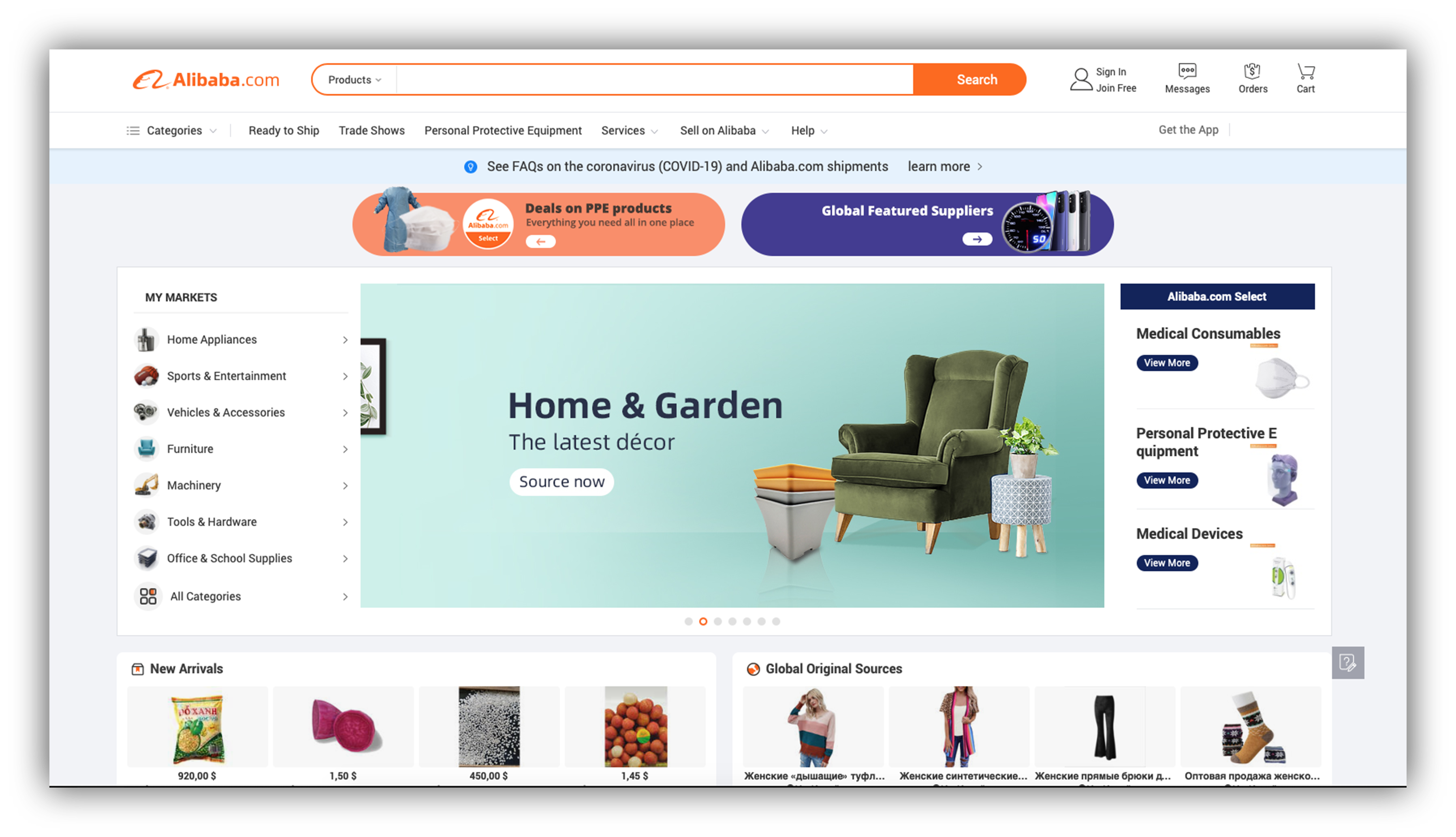
B2B Marketplaces connect businesses that sell to companies that buy. In such types of marketplaces, the orders are usually in bulk.
For example, company A produces memory cards, and company B produces mobile phones. Through B2B marketplaces, company B might order company A's products to sell them later in his final production.
Alibaba.com, Amazon Business, eWorldTrade are perfect examples of B2B marketplaces. You have nothing to do there as an ordinary customer who wants to buy a product 1-2 items.
B2C marketplaces
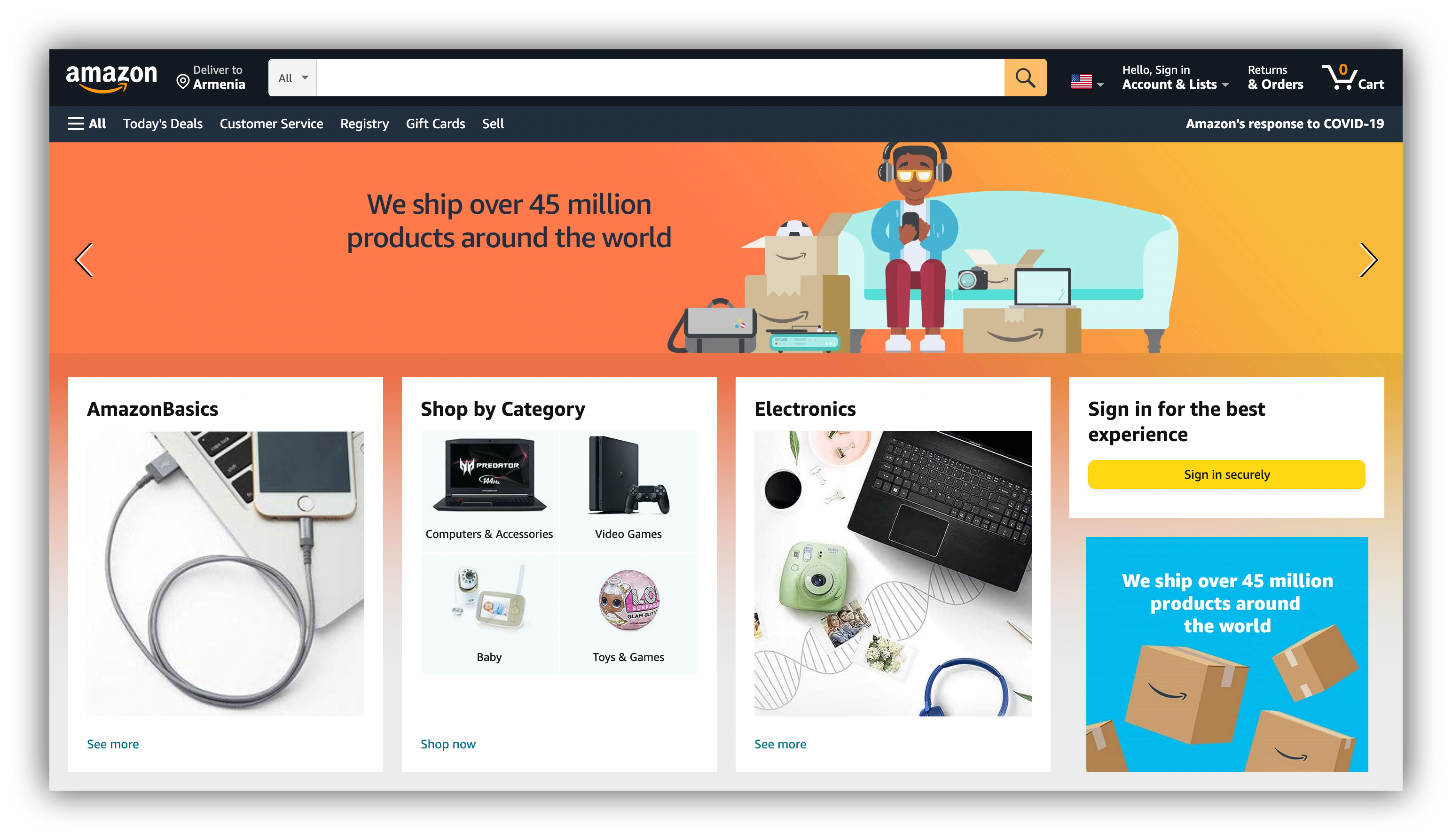
B2C marketplaces are what the vast majority of us often use. In the B2C marketplaces, companies sell to non-business customers. Therefore, there is no minimum quantity of orders, as the target buyers are individual customers who make purchases for their everyday life.
For example, in Chinese TMALL, you can sign up as a user and order anything starting from 1 piece. jd.com is another successful example of B2C marketplaces. It's like a shopping mall, but online. You can find everything in one place.
Peer to peer marketplaces
Peer to peer marketplace follows the C2C business model. Here, individual buyers connect to individual sellers; no companies.
Those types of marketplaces are also prevalent in everyday use. For example, when you order something from Etsy, you know you are buying from an individual artist selling a handmade product. Or, when you request a taxi in Uber, a personal driver who registered in the system accepts your offer.
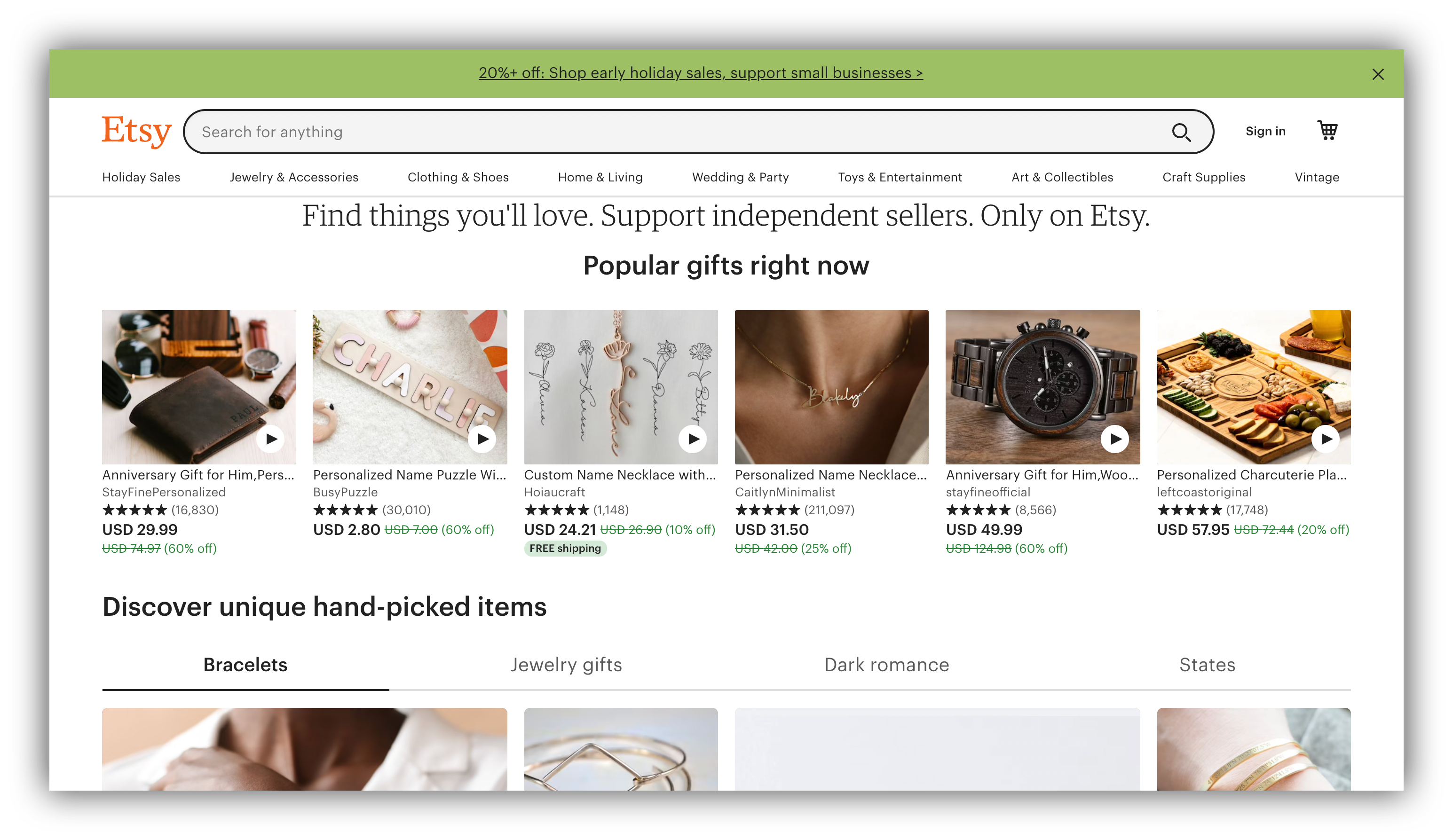
Our last C2C marketplace example is Boats by Owners, a marketplace for buying and selling boats from owner to owner. It's a row example of how marketplaces can help connect buyers to sellers without the intervention of business. This option becomes increasingly popular because individual sellers usually offer better prices.
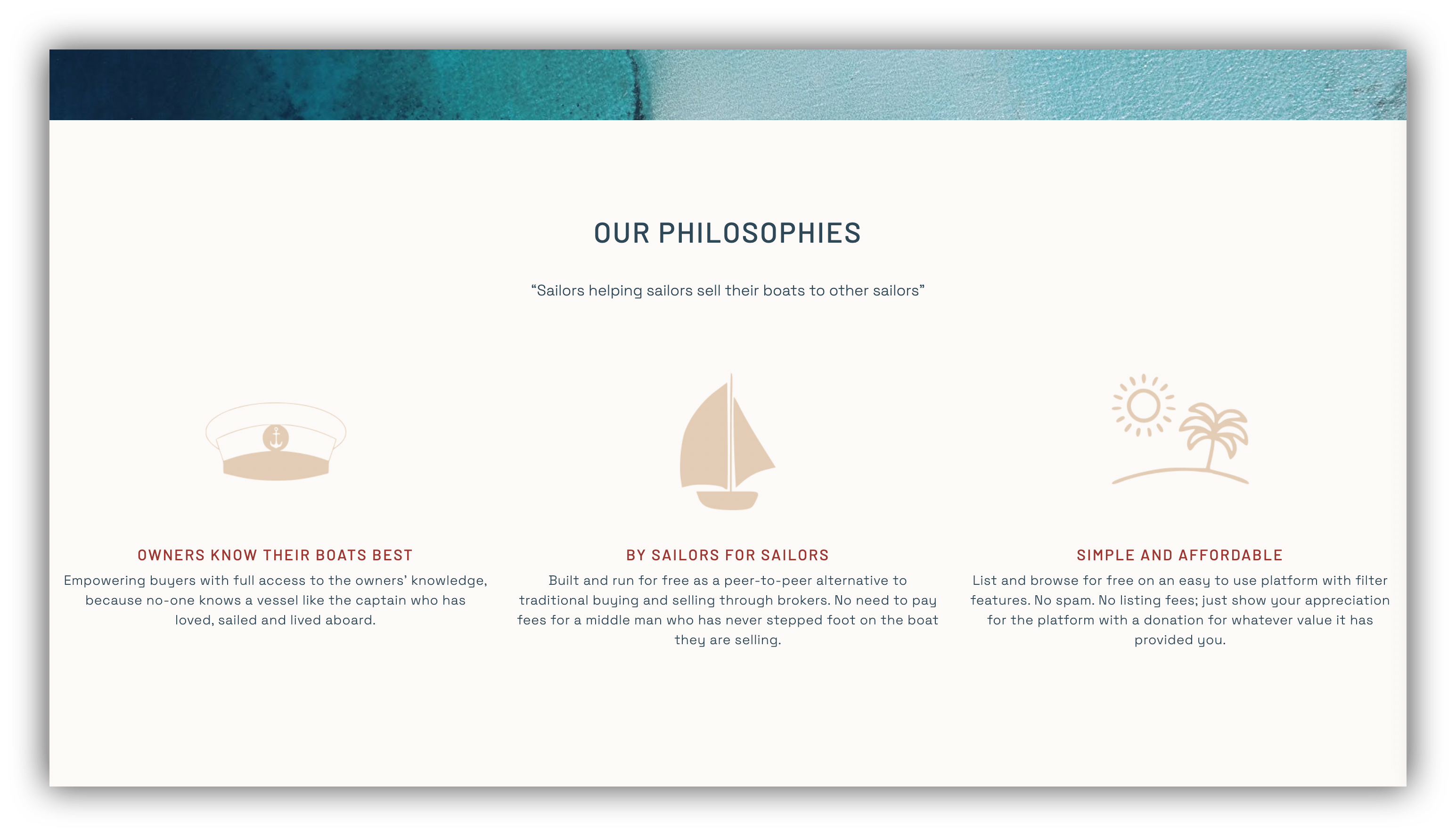
Marketplace of perks
The above examples were the most popular types of marketplaces we usually interact within daily life.
However, marketplaces have broader applications than the exchange of goods.
Take PERKS, as an example. It's a platform that offers various perks for organizations and helps them enhance their corporate culture. Particularly, PERKS team connects to organizations' leaders and staff, analyzes the core values and behaviors within the organization, and makes suggestions on how the company can offer a better environment for its employees.
How to develop an online marketplace yourself?
We guess, at this point, you can properly define the marketplace. Now it’s time to build one for your business.
There is no need to have a large team of specialists such as developers, UX designers, or others for building an online marketplace. You also do not need to have coding skills yourself.
Instead, you can use no-code platforms for building any marketplace website within minutes.
A no-code builder is a platform where the backend of the online marketplaces, websites, web applications, or similar is already implemented. As a result, you do not need time and effort to build your required functions. Instead, you can choose ready frontend templates, integrate available functions, and have a fully-equipped website with drag & drop features.
Build your marketplace with Softr, the easiest recipe
Softr allows you to create online marketplaces, e.g. rental marketplace, product marketplace, service marketplace, and more. Numerous use cases showcase how you can successfully operate your marketplace website with Softr’s templates in any industry.
Let’s cut straight to the chase and check one of the examples; how Nanny Network used Softr to create an online marketplace platform for parents to source childcare.

With this marketplace, parents can post a job with detailed requirements of nannies they want for their children, schedule child care consultations, receive parent guides, etc.
In short, with Softr you can:
- Create a unique experience for each buyer and seller with user authentication and permissions.
- Make the search, filter, and sort functions available for your marketplace's users.
- Show your users smart suggestions closer to what they have searched for in the platform before.
- Make transactions with the help of the Stripe native payment integration.
Head to our template page to get started!
About Softr
Softr is an easy-to-use no-code platform that turns Airtable bases into powerful web apps, member-only websites, and client portals. Softr offers a way for you to authenticate your end-users, control access to your content and data based on conditional rules like roles, logged-in status, subscription plans, etc. If you're using Airtable as a product catalog you can use a Softr template to build your e-commerce website. Or maybe you'd like to build a custom website for your travel journal, there's a template for that too!